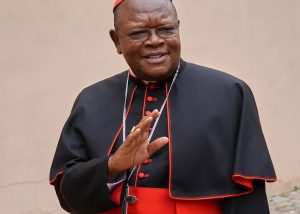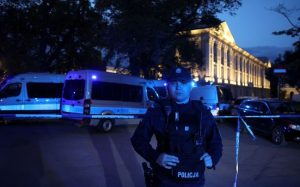Mondlane calls for protests over election dispute
3 min readMozambican opposition leader Venancio Mondlane has called for three days of protests, beginning this week, to contest what he describes as a stolen victory in last October’s national elections. Mondlane, who returned to Mozambique from exile just last week, has been at the forefront of political tensions in the country, accusing the ruling Frelimo party of electoral fraud and manipulation.
The situation escalated following Mondlane’s return, which led to confrontations between his supporters and police in the capital, Maputo. The clashes were a stark illustration of the growing divide between the opposition and the ruling party. Mondlane, the leader of the Mozambique Democratic Movement (MDM), insists that the October elections were marred by irregularities and claims that his victory was unfairly denied.
In a post on his Facebook page late Saturday, Mondlane urged his supporters to engage in a national strike as part of a series of protests aimed at challenging the legitimacy of the electoral process. His call for action comes just as the newly elected parliament is set to convene on Monday. As part of the political transition, Daniel Chapo, a 48-year-old former governor with no prior experience in the national government, is expected to take over as president on Wednesday, succeeding outgoing President Filipe Nyusi.
The Frelimo party, which has dominated Mozambique’s political scene since the country’s independence in 1975, officially declared a landslide victory in the October election. However, Mondlane’s accusations of electoral fraud and his calls for a national strike signal widespread discontent with the election results, particularly within opposition circles.
Mondlane’s protests are focused on what he sees as a blatant disregard for democratic principles. Despite the Frelimo party’s victory being recognized both domestically and internationally, Mondlane and his supporters remain resolute in their belief that the election process was rigged. The controversy surrounding the election has sparked fears of further unrest in the country, which has already experienced significant political tension in recent years.
Political analysts have expressed concern about the potential impact of the protests on the country’s stability. Mozambique has faced various challenges over the years, including economic hardships and violent insurgencies, especially in the northern regions. The political unrest triggered by Mondlane’s allegations of electoral fraud risks exacerbating these issues, potentially creating a volatile environment.
The transition to Chapo’s leadership has further fueled opposition skepticism. While Chapo’s appointment as president represents a new generation of leadership, his lack of experience at the national level has raised doubts about his ability to govern effectively. This uncertainty, combined with the ongoing election dispute, has added to the tension in the country, with many questioning whether his presidency will bring any meaningful change or if it will perpetuate the same political dynamics that have long dominated Mozambican politics.
Mondlane’s call for protests highlights the deep divisions between the opposition and the ruling party. In his view, the people of Mozambique deserve a government that represents their interests and respects their votes. For Mondlane and his supporters, the issue is not just about a single election, but about the broader question of democracy and the need for political reforms in the country.
The political landscape in Mozambique remains tense as the protests loom. While Mondlane’s calls for a national strike are likely to gain traction among his supporters, the government’s response will be crucial in determining whether the protests will escalate or dissipate peacefully. As the new parliament prepares to sit, all eyes will be on the government’s handling of the opposition’s grievances and whether any concessions will be made to ease the political unrest.
In the coming days, the people of Mozambique may find themselves at a crossroads, as political tensions reach a boiling point. The outcome of this dispute could have long-lasting implications for the country’s democratic process and its political future. For now, the call for protests stands as a powerful reminder of the contentious nature of Mozambique’s politics and the ongoing struggle for fair representation in the nation’s government.






